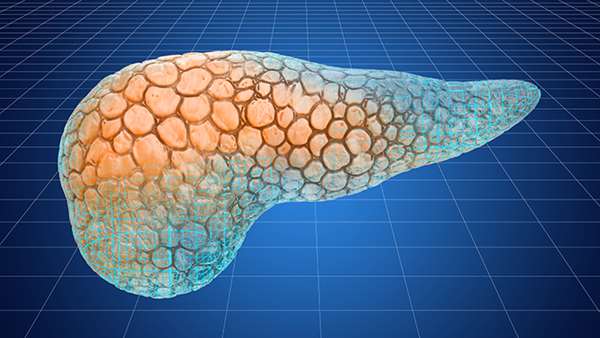Osiris Therapeutics Receives FDA Orphan Drug Designation for Stem Cell Treatment for Type 1 Diabetes
Osiris Therapeutics, Inc. (NASDAQ:OSIR) today announced that it has been granted Orphan Drug designation from the U.S. Food and Drug Administration (FDA) for Prochymal as a treatment for type 1 diabetes mellitus. The FDA instituted the Orphan Drug Act to promote the development of treatments for underserved patient populations.
Osiris Therapeutics, Inc. (NASDAQ:OSIR) today announced that it has been granted Orphan Drug designation from the U.S. Food and Drug Administration (FDA) for Prochymal as a treatment for type 1 diabetes mellitus. The FDA instituted the Orphan Drug Act to promote the development of treatments for underserved patient populations. To be eligible for Orphan Drug designation, the treatment must target a disease that affects fewer than 200,000 new patients per year in the United States.
Orphan Drug designation provides market exclusivity for up to seven years following approval, eliminates FDA filing and registration fees, and provides tax incentives for as much as 50 percent of the clinical development costs. Osiris also holds Orphan Drug designation for Prochymal used in the treatment of graft versus host disease (GvHD).
Prochymal, a formulation of adult mesenchymal stem cells (MSC) designed to provide therapeutic benefit by controlling inflammation, promoting tissue regeneration, and preventing scar formation, is currently being evaluated in a double-blind, placebo-controlled Phase II clinical trial for type 1 diabetes. Osiris is developing Prochymal in partnership with the Juvenile Diabetes Research Foundation (JDRF) as a treatment for patients with newly diagnosed type 1 diabetes mellitus.
In type 1 diabetes, the patient"s own immune system attacks and destroys insulin-producing islet cells in the pancreas, resulting in the loss of blood-sugar control. Currently, there are no approved treatments for altering the rate of destruction of these critical islet cells, called beta cells. Preclinical studies first conducted by researchers at Genzyme found that MSCs may delay the progression of type 1 diabetes by preserving beta cell function.
About the Phase II Type 1 Diabetes Trial
The Phase II trial is evaluating the safety and efficacy of Prochymal in preserving insulin production in patients 12 to 35 years old recently diagnosed with type 1 diabetes. To be eligible, candidates must have been diagnosed two to twenty weeks prior to participation in the study. The 62 patient, double-blind, placebo-controlled trial is being conducted at 20 leading medical centers across the United States.
About Prochymal
Prochymal is a preparation of mesenchymal stem cells (MSCs) formulated for intravenous infusion. The MSCs utilized in Prochymal are isolated from the bone marrow of healthy young adult donors, avoiding the controversy surrounding embryonic and fetal cell sources. They are grown in culture, permitting large-scale production. Because the cells can be expanded, thousands of doses can be produced from a single donation. Studies suggest MSCs are able to safely facilitate tissue repair through a number of mechanisms. Specifically, these studies indicate that MSCs are able to down-regulate severe inflammation and work at the cellular level to rebuild damaged tissue through the coordinated release of tissue-specific growth factors.
Prochymal is being evaluated in Phase III programs for graft versus host disease (GvHD) and Crohn"s disease, as well as Phase II programs for the treatment of acute myocardial infarction, pulmonary disease and type 1 diabetes. Prochymal has been granted Fast Track status by the FDA for GvHD and Crohn"s disease, and is the first stem cell product to receive FDA expanded access approval, making the product available now to patients with life-threatening GvHD. Prochymal also obtained Orphan Drug status for GvHD and type 1 diabetes from the FDA as well as Orphan Drug status for GvHD from the European Medicines Agency.
About Juvenile Diabetes Research Foundation
JDRF is a leader in setting the agenda for diabetes research worldwide, and is the largest charitable funder and advocate of type 1 research. The mission of JDRF is to find a cure for diabetes and its complications through the support of research. Type 1 diabetes is a disease which strikes children and adults suddenly and requires multiple injections of insulin daily or a continuous infusion of insulin through a pump. Insulin, however, is not a cure for diabetes, nor does it prevent its eventual and devastating complications which may include kidney failure, blindness, heart disease, stroke, and amputation.
Since its founding in 1970 by parents of children with type 1 diabetes, JDRF has awarded more than $1.3 billion to diabetes research, including more than $100 million in FY2009.





ارسال به دوستان